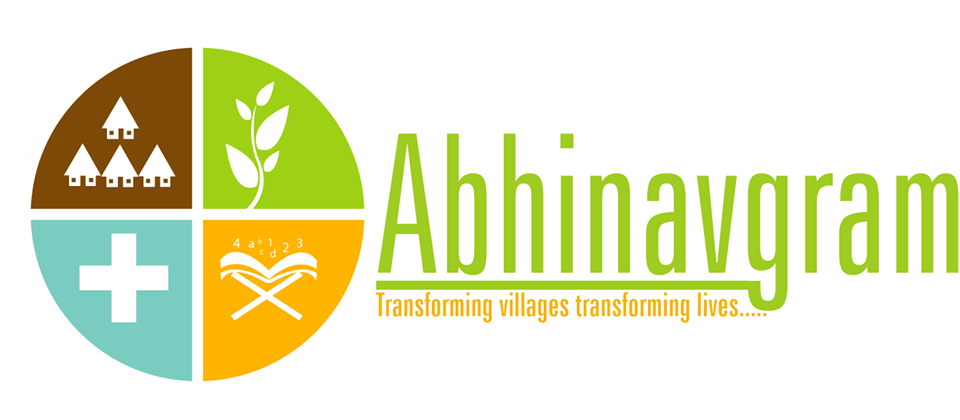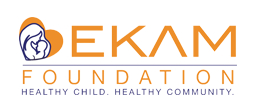Inclusion of Sustainability
To create wider impact in short time through partnership
We should introduce the sustainability component in the process, projects and programs of established organizations, institutions and NGOs, to make their effort more fruitful. Strategies should be formed to work on the real cause of the problems instead of the effects we see. For instance, if an NGO is working in Healthcare, we should guide them to focus more on preventive health care more than supporting surgery cost. If an organization is working in Education, we should suggest them to focus on value education and restoring traditional wisdom. If a tribal person gets a degree and move to urban area looking for a job, is it a sustainable activity?
Climate change is real and its effects are increasing every day. We must include the idea of sustainability in all our efforts and plans to develop strategies which can be used for adapting the effects of climate change and mitigate further emissions. We should join hands with Individuals & Communities, Educational institutions, Farmer producer companies, NGOs, Government departments, Corporate, PSUs, Hospitals and Village panchayats, to create wider impact touching more lives.
Key items to work are,
 Inclusion of Sustainability
Inclusion of Sustainability Climate change emergency
Climate change emergency Air, Water and Soil quality
Air, Water and Soil quality Self reliance, Inherent ethics, Self sufficiency
Self reliance, Inherent ethics, Self sufficiency Waste management
Waste management Fair price to Farmers
Fair price to Farmers Safe food promotion among producers and consumers
Safe food promotion among producers and consumers Native trees saplings development
Native trees saplings development Value Education
Value Education Social Enterprises
Social Enterprises
Our Approach to implement the key items are,
 Awareness creation using media
Awareness creation using media Development of live models
Development of live models Documentation of traditional wisdom
Documentation of traditional wisdom Exhibition of Sustainable campuses
Exhibition of Sustainable campuses CSR focus on Environment and sustainability work
CSR focus on Environment and sustainability work Establishment of global network of experts and field workers
Establishment of global network of experts and field workers Women centric development
Women centric development Workshops and field visits for adults and children to learn self harmony and sustainability
Workshops and field visits for adults and children to learn self harmony and sustainability
Work set for any enclosed campus (SET1) whether it is school, college, apartments, hospitals or prisons.
 Waste management
Waste management Composting
Composting Vegetable and herbal gardening
Vegetable and herbal gardening Tree planting
Tree planting Seedlings and saplings nursery
Seedlings and saplings nursery Rainwater harvesting
Rainwater harvesting Reuse of waste water
Reuse of waste water Organic food supply for events
Organic food supply for events Eco-friendly event management
Eco-friendly event management
Based on their involvement, we can introduce them next level of works which include Solar, Biogas, Process analysis and maintenance.
How will we engage with stakeholders?
NGOs
i. Understand the organisation’s vision, process and strengths.
ii. Discuss and analyse the possibilities of inclusion of sustainability in their process and projects.
iii. Come up with resolutions and finalise a change in process and follow up the implementation for a certain period of time depending on the project size.
Workshops for the team members to develop better understanding in human consciousness so that our intervention is not needed in the future.
A small change could bring in lot of difference in the results. For a well established NGO whose presence is across the state, our intervention will bring impact to more population with their existing network.
Government departments
We must engage with various government departments who play a vital role in bringing changes at different levels. Few departments whom we have to work with are,
i. Social welfare
ii. Rural development and Panchayat raj
iii. Agriculture
iv. MSME
v. Environment and Forest
vi. Health and Family welfare
vii. Organic certification (TNOCD)
How will we engage with them?
- Workshops for officials and decision makers
- Exposure trips to see efficient models
- Enable interaction with all stakeholders for better decisions
- Discuss and analyse the possibilities of inclusion of sustainability in their work routine
- Come up with resolutions and suggest them a change in process
- Make use of the existing schemes and programs for the needy
- To fill the gaps wherever necessary
Corporate and PSUs
Introduction of sustainable technologies and corporate social responsibility (CSR) are the focus. CSR should be well connected to develop models for adaptation to the effects of climate change and further mitigation of emissions.
For any campus, we will include SET1 activities if space is there. Following are additional.
- Organic Farmers Cooperative weekly shandy
- Conscious consumers group formation
- Safe food express kiosk
- Farm tourism
- Community farming for new age farmers
- Support extension to staff homes (SET1)
Educational Institutions
Inculcating values in young children is the best way to bring changes in the long run. Schools and Colleges create citizens of tomorrow. More focus should be given to educational institutions to sustain the changes made by adults.
For any campus, we will include SET1 activities if space is there. Following are specific to educational institutions.
- Value education
- Safe food express kiosk
- Nutrition focus in canteens
- Farm visits
- Movies and workshops
- Higher education choices in sustainable development
- Career choices in sustainable development industry
- Entrepreneurship development cell
- Kitchen gardening
- Seedlings and saplings development
Workshops will be done for the teachers to develop better understanding in human consciousness to improve their approach towards students.
Hospitals
Patients need toxic free, hygienic and nutritious food to recover soon. Even in cancer hospitals, we get food made with repeatedly used refined oils. For any campus, we will include SET1 activities if space is there. Following are specific to Hospital campuses.
- Safe food express kiosk
- Medical waste management
- Traditional varieties of rice to be promoted for specific health conditions
- Should improve inpatient food and canteen food
- Vegetables and herbal saplings to be sold for visitors and outgoing patients
- Organic Farmers Cooperative weekly shandy for doctors, staff and visitors
Farmer Producer Companies (FPC) and Farmer Groups (FG)
United group of farmers can really bring changes in a large level. More youngsters are taking charge as CEOs of FPCs and working in Agri sector to bring real changes among the farming community.
- Understand the FPC’s vision, process and strengths.
- Discuss and analyse the need for our intervention. Our intervention could be marketing support, capacity building, value addition, product development, clinical study, consumer awareness campaigns, direct selling initiatives or more.
- Come up with resolutions and follow up the implementation for a certain period of time depending on the project size.
- Focus will be on
- Self reliance
- Rural livelihoods
- Farmers cooperative
- Fair price
- Organised work force
- Innovations
- Food forests
Individuals and Communities
Lot of individuals are moving towards a better life in terms of food, environment and lifestyle. Even career choice is made in such way. Lot of communities are formed to spread awareness and eco-friendly lifestyle. Such as,
- Cloth bag movement
- Grama sabha movement
- ‘Back to the villages’ team
- Weekend Agriculturists
- Tree planting groups’s
- Coastal cleanup groups
- Food waste management groups
- Traditional medicine promoters
- Green architects
- Pond renovators
- Community farming groups
- Social workers
- Native Seed savers
- Self Governance team
Such individuals and communities could be organised in such a way that all the efforts are well connected and creates wider impact touching more lives.
Self Governance
Village Panchayats are the best platform for Sustainable Rural development. Strengthening Grama sabha is the only way to strengthen Village Panchayats. We will encourage our rural communities to participate in respective Panchayat’s Grama sabha. To implement this efficiently we will be associated with Self governance (thannatchi) team.
- Workshops for Panchayat officials, elected members and communities will be done by Thannatchi team.
- Exposure visits to successful Panchayats in the state will be arranged.
Working on the inclusion of sustainability will leads to the following results.
Working on the inclusion of sustainability will leads to the following results.
- Wider market reach for rural produce
- Social enterprises and related jobs
- Community living model
- Farmers cooperative
- Planet Blue forum to connect all
- Food forests
- Skilled work force to combat climate change effects and its source
- Resource development
- Display of choices for people who wish to lead a sustainable life
- Better education and understanding in communities wherever we work
This is a basic work structure which will obviously improve during implementation. Lot of volunteers will also be involved in the process.
Our work in general will keep evolving continuously with the changing needs of communities and to cover the gaps in multiple levels.
We have started working with the following institutions.



- Abhinavgram Society, Namakkal district
- Dindigul district organic farmers group, Dindigul district
- Ekam Foundation, Chennai
- Karur moringa and vegetables farmer producer company, Karur district
- Sathuragiri Watrap Organic farmers group, Watrap, Virudhunagar district
- Thaimann Agri related farmer produce company, Thiruvarur district
- Thannatchi, Chennai
- VOICE special kids parent group, Chennai
- Women’s Indian Association, Chennai
Lot more organisations will be added in the near future.